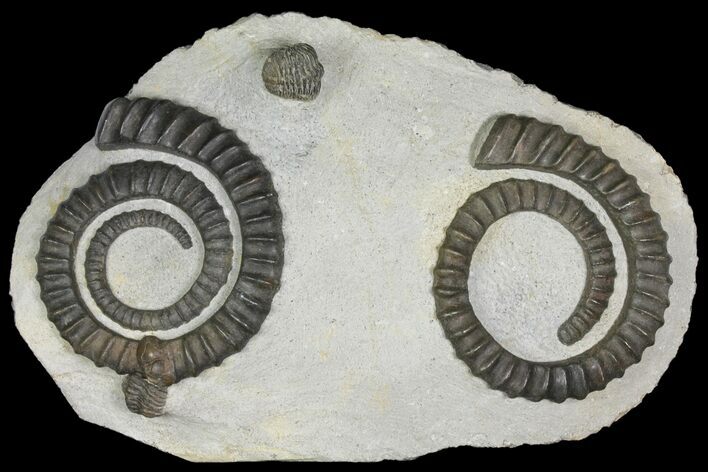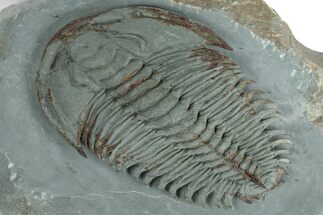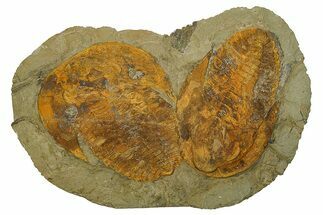This Specimen has been sold.
12.4" Plate of Ammonoid (Anetoceras) Fossils and a Trilobite - Morocco
This is an 12.4" wide specimen that contains two complete Early Devonian ammonites (Anetoceras), quarried in the Anti-Atlas Region of Morocco. The ammonites have been painstakingly prepared from the hard limestone matrix that they were found. There is a naturally associated, partially enrolled phacopid trilobite that has been prepped free from the limestone, along with the segments and the head of a trilobite adjacent to the largest ammonite.
The largest ammonoid cephalopod is 5.2" wide. Comes with a display stand.
The largest ammonoid cephalopod is 5.2" wide. Comes with a display stand.
About Anetoceras
Anetoceras is an early ammonoid cephalopod, first named by O.H. Schindewolf in 1934, that lived in the latter part of the Early Devonian period. It is distinguished by its loosely coiled, prominently ribbed shell, with the coiling occurring in a single plane so that the whorls are close together but do not touch. The shell’s ribs are narrow and widely spaced, adding to its distinct appearance and making it an important specimen for understanding early ammonoid evolution.
Anetoceras is an early ammonoid cephalopod, first named by O.H. Schindewolf in 1934, that lived in the latter part of the Early Devonian period. It is distinguished by its loosely coiled, prominently ribbed shell, with the coiling occurring in a single plane so that the whorls are close together but do not touch. The shell’s ribs are narrow and widely spaced, adding to its distinct appearance and making it an important specimen for understanding early ammonoid evolution.
SPECIES
Anetoceras sp.
AGE
LOCATION
Anti-Atlas Region, Morocco
SIZE
Largest ammonite 5.2" wide, 12.4 x 8.1" Rock
CATEGORY
SUB CATEGORY
ITEM
#135997
We guarantee the authenticity of all of our specimens.
 Reviews
Reviews













